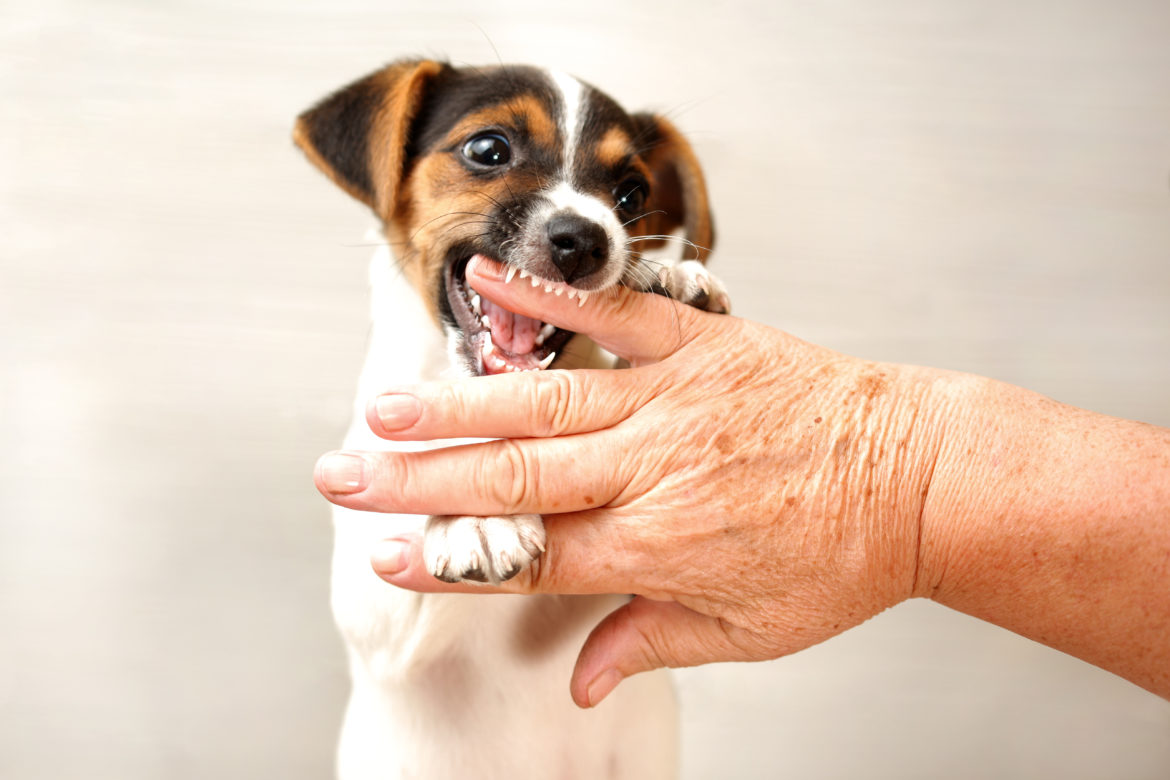Just like humans, dogs grow their first set of teeth as puppies and shed them to be replaced with their adult teeth. As a dog owner with a new puppy you might be asking yourself, when does your puppy start teething, how to tell and what you can do to keep them and their teeth healthy.
When do puppies get their baby teeth?
Puppies usually start teething and get their first teeth, also called milk teeth or deciduous teeth, at two weeks and older. Most of the time as the new pet parent, you will get your pup in the end or after the first teething process.
You might notice that your puppy is chewing on things other than toys and bones. If this is the case, you can try to give them toys that are a better option for their teething needs, both for you and them. It can be frustrating if your pup is chewing up your favorite shoes or other items laying in their reach. If one toy doesn’t satisfy him, there are several options out there.
When do puppies lose their baby teeth?
Puppy’s baby teeth start to fall out usually when they are 4 months of age and are usually replaced at 6 months old.
Note: Puppies have 28 baby teeth and grow 42 adult teeth after that.
You can check every now and then to see how many teeth you can see in order to have a better idea of how many more teeth are to come.
Again, this teething phase can cause them to want to chew more on everything that is available to them. You will want to give them teething toys or other distractions to avoid having your sofa or bags chewed on.
Why do puppies want to chew so much?
Similar to human babies, teething is uncomfortable and can be painful. While it is natural and normal to feel discomfort, babies – human or dog – don’t know what is going on and simply react and try to sooth their discomfort.
How can I help my puppy?
There is not much you can do to help other than give him toys to chew on or softer bones and treats. Keep him occupied and don’t forget about playtime. As puppies also love biting hands and fingers this is also the perfect time to try to get them out of that habit and focusing them on toys they are allowed to chew, destroy, whatever.
While it doesn’t happen often, in the case you notice your puppy is growing his permanent teeth without losing some of his deciduous teeth, you should go see a vet to get him checked out.
Keeping puppy’s teeth healthy
Avoid hard bones and toys to chew on. Even with their permanent teeth, puppies can hurt their teeth from chewing on things that are too hard like hard natural bones.
Start a teeth cleaning regimen. While is it not a must, it is a good idea to start cleaning their teeth early on so that later they are used to it already. You don’t have to start with a brush but can use your fingers and a bit of dog toothpaste to clean their adult canine teeth.
